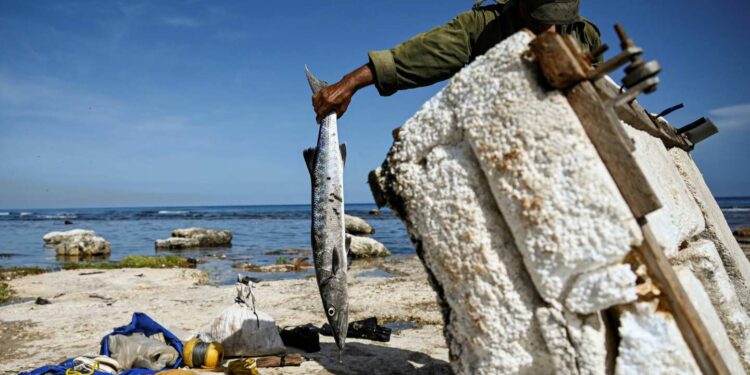Cuba still gives the impression of a country where time has stopped. There are no gaudy advertisements on the streets, no brand names on the storefronts, no traffic on the avenues and very few chemicals in the food. The only modern element that stands out is the smartphones some residents tap away on. Owned by over 80% of the population, they have become indispensable for getting information, paying, changing money and doing business. At the same time, Cubans continue to get around mainly on foot and by bicycle. Even the smallest car or motorcycle is an exceptional asset, enabling a driver to earn 10 times the salary of a doctor or teacher.
Despite an ideology claiming to be socialist, inequalities are now glaring within society between those who work for the state and those with other incomes. According to Cubans, the current social crisis is far worse than that of the “special period,” when the Soviet bloc collapsed from 1991 onwards, the worst the island had experienced up to that point.
In Havana, on the Malecon, the promenade that runs alongside the sea, American convertibles from the 1950s still take tourists on a tour of the capital. They drive alongside old Lada cars from the USSR, like the one driven by Romulo (all first names have been changed), won by his father for fighting in Angola’s war of independence (1975-2001).
“You have to have fe [faith] to live in Cuba,” he said, pressing hard on the knob to engage a gear. Fe does not mean adhering to a creed but having a family abroad. “It’s enough to get $50 a month or a few clothes you can resell to live well,” said Romulo. “But if you don’t have that or a car, then you’re what the government calls ‘vulnerable,’ as not to say ‘poor.’ But in reality, every day, you struggle to survive.”
‘Cars that are incompatible with our society’
At 27, Romulo would have liked to work as an engineer, after six years studying at Havana University. But the salary that awaited him (10,000 Cuban pesos, or €30.30) would not allow him to raise his 2-year-old son or help his parents, whose pension (1,200 pesos) is now equivalent to a carton of 30 eggs.
So he reluctantly drives the Lada, logs on to the La Nave app, a Cuban Uber, and earns a very good living. “In a day, I earn 12,000 pesos, or 10 times my father’s pension or the same monthly salary as a doctor,” he said. “It’s crazy, it’s unfair, and the government knows it very well: Most Cubans can’t afford the price of an errand and yet I do more than 10 a day.”
At the red light, in front of the always perfectly mowed lawns of Independence Avenue, state-of-the-art pick-ups also stop: “These cars are worth a fortune, twice as much as in the US. They come from Panama and agencies import them, charging almost half the selling price,” said Romulo, who is thinking of changing his Lada. In a speech in July, Prime Minister Manuel Marrero expressed his indignation at the opulence visible on the streets, denouncing “cars that are incompatible with our society.” “Their owners must have had fe, a family abroad, at least initially to invest in Cuba,” said Romulo.
You have 68.76% of this article left to read. The rest is for subscribers only.
Source link : http://www.bing.com/news/apiclick.aspx?ref=FexRss&aid=&tid=66cd5a7d2eb44b009142f75b531ed28d&url=https%3A%2F%2Fwww.lemonde.fr%2Fen%2Finternational%2Farticle%2F2024%2F08%2F27%2Fcuba-is-facing-its-worst-social-crisis-since-the-collapse-of-the-soviet-bloc_6722133_4.html&c=12281083612912049849&mkt=en-us
Author :
Publish date : 2024-08-26 15:51:00
Copyright for syndicated content belongs to the linked Source.












